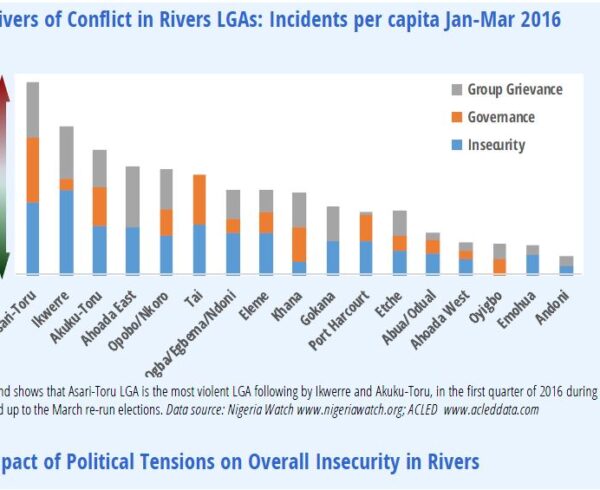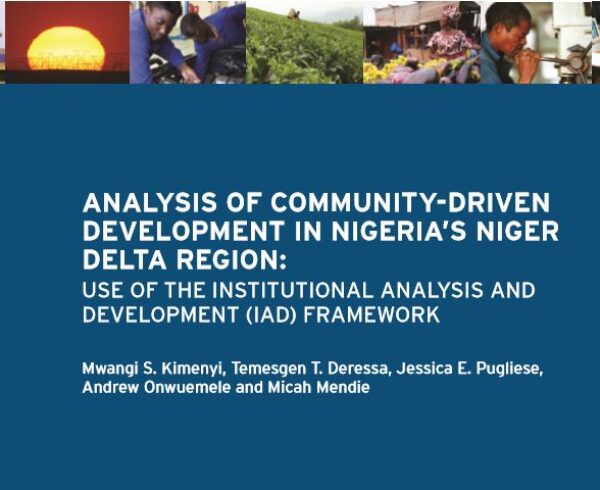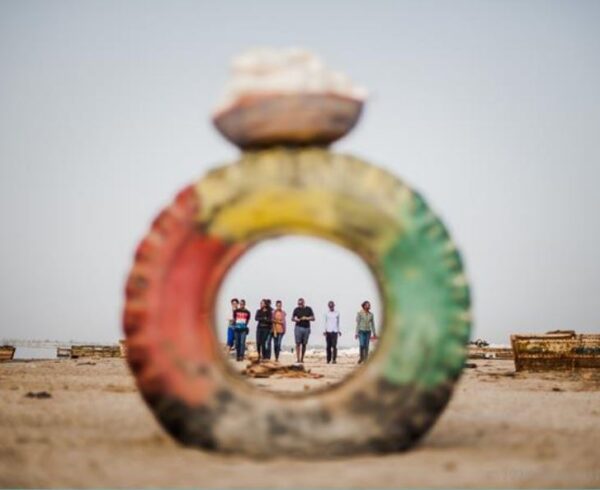A woman is physically assaulted by her husband, following an argument. She reports the incident to the Gender and Development Action (GADA) office in Rivers state, who invites them both to mediation. The husband signs a declaration that he will never assault her again. A few weeks pass and the woman is back at GADA. Her husband has now cut off her access to money and she cannot maintain the household.
Cases like this are an everyday occurrence for many women in Rivers state – and across Nigeria. Physical violence and sexual assault are often perpetrated against women and children in households, but so too are other forms of abuse, such as financial disempowerment. Some research suggests that over 30 per cent of Nigerian women have experienced physical, sexual or emotional domestic violence during their lifetime.1 In the context of Rivers state, data on the P4P Peace Map suggests in the first quarter of 2018, the most prevalent forms of domestic violence reported were physical abuse and economic disempowerment of women by spouses/partners (see graph on pg.2). This abuse can have lasting effects not only on survivors, but also intergenerational impacts on families and broader society.





Leave a Comment